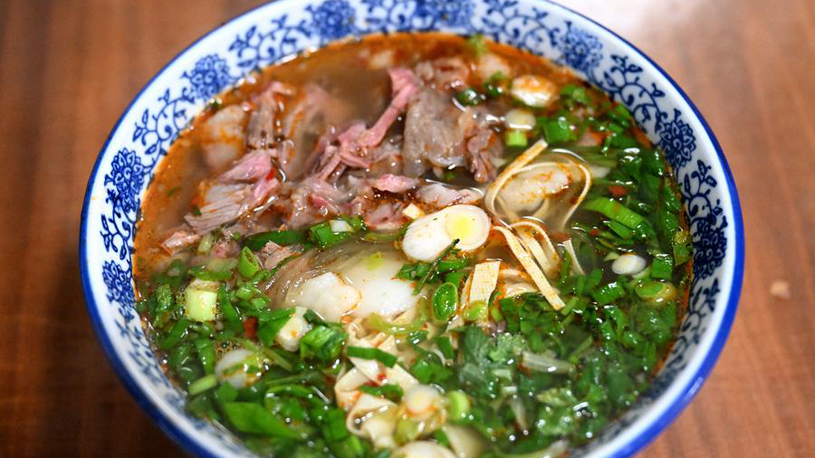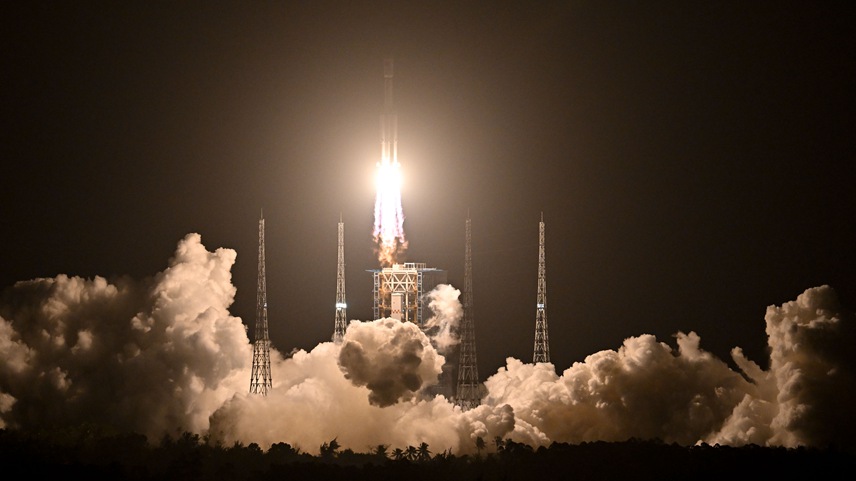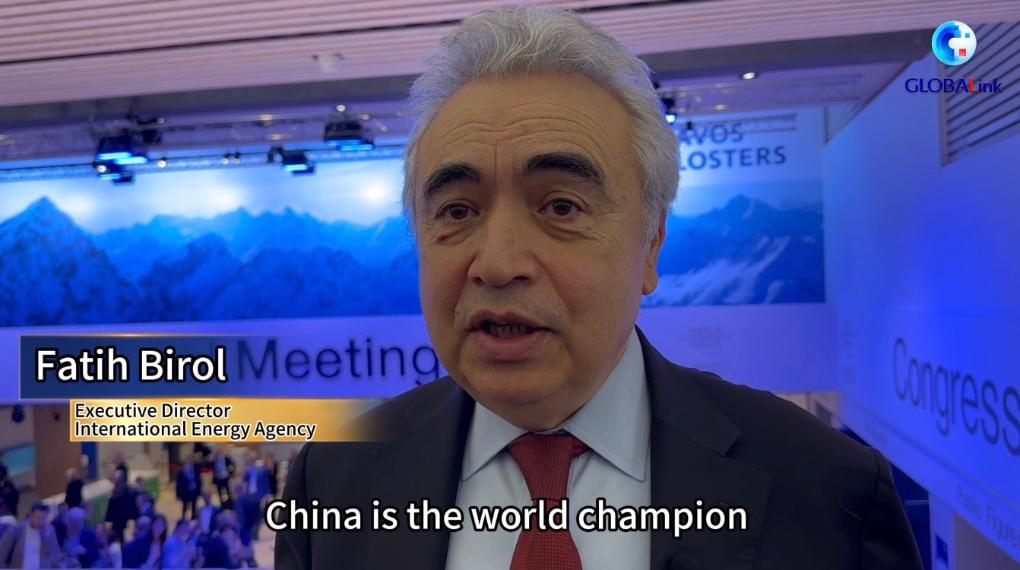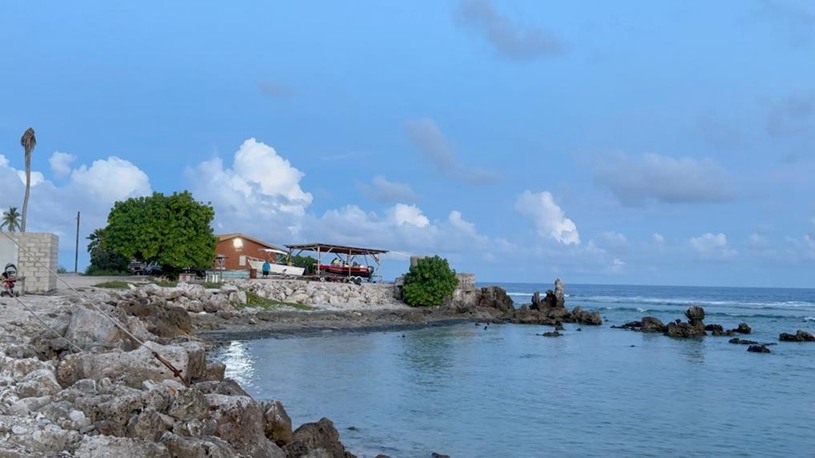* In the past 200 years, the United States has consolidated its dominance over Latin America through direct military invasions or indirect interventions, annexing territories, overthrowing governments and securing the rights to use canals.
* Latin Americans, now keenly aware of U.S. interventionist policies as the continuation of the Monroe Doctrine, have called for greater regional integration to defend their interests.
BEIJING, Jan. 19 (Xinhua) -- In April 2009, during the Fifth Summit of the Americas, then president of Venezuela Hugo Chavez gave his U.S. counterpart Barack Obama a book titled "The Open Veins of Latin America," which eloquently argues that the West has long plundered the region's natural resources to bankroll its own progress.
What the author Eduardo Galeano referred to as the "underground gold and silver veins" had been exploited for centuries and the mineral wealth exported to other lands. "The underdevelopment of Latin America derives from the development of others and it continues to feed it," he wrote.
After more than 300 years of European colonial rule, Latin America no sooner saw the dawn of national independence in the early 19th century than Uncle Sam broke in, vying for its rich resources.
In December 1823, James Monroe, the fifth American president, delivered a speech to Congress proclaiming "America for Americans." And the United States has since been obsessed with the Monroe Doctrine to hold sway over Latin American countries, unscrupulously launching coups, invasions and sanctions whenever necessary.
Today, the Monroe Doctrine persists, bleeding dry the "veins" of Latin Americans, undermining their national security and stymieing their social development.
INVASIONS
In the early morning of Dec. 20, 1989, in Panama City, a violent explosion startled Trinidad Ayola. She started to worry about her husband, who was stationed at Paitilla Airport in the Panamanian capital to protect the facility.
Her worst fears turned reality. "When they went to identify him, I couldn't, I didn't have the strength to identify him, his entire back was full of holes," she said.
That very day, the United States launched a military operation, codenamed "Just Cause," to invade Panama and overthrow the government of Manuel Noriega. During the invasion, a large number of houses and buildings were destroyed. The Pentagon put the number of those killed Panamanian soldiers and civilians at 500, but the actual number remains a mystery until today.
As president of the Association of Relatives and Friends of the Fallen on December 20, Ayola has worked for years to bring the truth to light. She believes the invasion left a scar on many Panamanians that has yet to heal.
"'Just Cause' was them looking after their interests, not looking after us. What we experienced was a great injustice," she said.
The 1992 Oscar-winning documentary, "The Panama Hoax," revealed the ulterior motive for the incursion: to deploy the U.S. military there for the long term, install a new government to defend Washington's interests and those of U.S. corporations, and control the Panama Canal.
In the past 200 years, the United States has consolidated its dominance over Latin America through direct military invasions or indirect interventions, annexing territories, overthrowing governments and securing the rights to use canals. It launched a war with Mexico and seized about 55 percent of its territory, militarily occupied Haiti and plundered its national wealth, invaded Granada and overthrew the government, and sent warships to "monitor" elections in the Dominican Republic, just to name a few.
According to a study by Tufts University, the United States has launched nearly 400 military interventions around the world since its independence in 1776, and up to 2019, 34 percent of these operations were directed against Latin American and the Caribbean countries.
"From the start, the Monroe Doctrine was based on the idea that the United States would have the exceptionalism of being the country chosen to lead others, even if this meant military interventions, coups d'etat and colonialism," says Lucas Leite, associate professor of international relations at Brazilian academic institution FAAP.
Euclides Tapia, professor of international relations at the University of Panama, said that the crux of the Monroe Doctrine is for Washington to wield sole control over the Americas.
"What are called the corollaries of the Monroe Doctrine mean the instances in which it mutates to adapt to the circumstances of the moment, but its essence is the same throughout history, domination over the American Continent," said Tapia.
COUPS
On the morning of Sept. 11, 1973, audiences nationwide heard the calm but firm voice of then Chilean president Salvador Allende aired by Radio Magallanes: "I am not going to resign! Placed in a historic transition, I will pay for loyalty to the people with my life."
Surrounded by tanks and bombarded by fighter jets, Allende led the presidential guard in a desperate fight against the coup forces, only to die in the line of duty. In the final moments of his life, he revealed to the public via radio that the coup was launched by reactionary groups backed by foreign capital and imperialism.
The coup d'etat marked one of the darkest episodes in Chilean history. As reported by the British newspaper The Guardian, "the hands of the United States are stained with the blood of Chileans," as it was Washington that instigated the coup in order to prevent the emergence of a "second Cuba" in Latin America.
According to The New York Times, the U.S. government allocated 815,000 U.S. dollars to create division within Allende's government, and between 1970 and 1973 the Central Intelligence Agency spent more than 8 million U.S. dollars in Chile, most of which was used to finance strikes and demonstrations by right-wing opposition groups.
In the past 200 years, the United States has habitually engineered coups in Latin American countries and persecuted leaders of left-wing political parties. According to a study by Harvard University, between 1898 and 1994, Washington plotted and staged at least 41 coups d'etat in Latin America, equivalent to one every 28 months.
In recent years, the Monroe Doctrine has been consolidated by more covert judicial coups, or lawfare. Collusion between the U.S. and Brazilian judicial and intelligence services succeeded in depriving Luiz Inacio Lula da Silva of an envisioned reelection in 2018 and sent him to prison. Progressive leaders from Argentina, Bolivia, Ecuador and other countries have also been plagued with judicial coups or even fell victim.
Hooked on the Monroe Doctrine, the United States schemes to generate political instability in Latin America to easily replace leaders who question the region's subordination to Washington, said Pavel Aleman Benitez, researcher at Cuba's International Policy Research Center (CIPI).
As American Congressman Greg Casar observed, "U.S. foreign policy has too often contributed to instability in Latin America."
SANCTIONS
On Feb. 14, 2019, in a residential building in the populous El Valle district of southeast Caracas, Venezuela's capital, taxi driver Ramon de la Hoz was preparing a meager lunch with broth, rice and orange juice.
U.S. sanctions led to a stringent lack of basic human necessities as well as medical supplies. This was harder on De la Hoz, who had diabetes and had to take daily insulin injections.
"The health issue is tremendous" and the situation has made it "very difficult for us to get medicine," said De la Hoz.
The United States has imposed various egregious policies on Latin American countries, such as economic sanctions, trade and technology embargoes, asset freezes, visa cancellations, entry restrictions and asset confiscations against government officials or business owners who refuse to toe the line.
Since 1962, an embargo has been enforced against Cuba, which, according to official Cuban statistics, has caused the island nation accumulated losses of more than 154.2 billion U.S. dollars, or about 1.4 trillion U.S. dollars if the dollar's depreciation against the price of gold on the international market is taken into account.
The United States has also imposed sanctions on Venezuela since 2006 and, in recent years, tightened punishment on its government. Venezuelan President Nicolas Maduro said that due to the U.S. sanctions, his country has suffered losses of 232 billion U.S. dollars in foreign currency and over 630 billion U.S. dollars in losses to GDP.
Bolivia's former Foreign Minister, Fernando Huanacuni, said the U.S. unilateral policies have had "catastrophic consequences" in the region, as part of what he describes as "a dark history of neocolonialism."
The "imposition of U.S. and Western imperialism should never again be repeated" in the region "because history ... has shown us that that is not the way," he added.
INFILTRATION
On the afternoon of Feb. 4, 2020, then U.S. President Donald Trump introduced Juan Guaido to lawmakers at the Congress, calling him "the true and legitimate president of Venezuela."
As early as 2005, Guaido, then a Venezuelan "student leader," received "insurrection" training funded by the U.S. National Endowment for Democracy. He returned to his country to preach far-right ideas among the youth, and plotted a series of violent political demonstrations.
After Maduro won reelection in 2018, Washington pulled the strings behind Guaido in a bid to overthrow Maduro's government. Under U.S. coercion, more than 50 countries and the European Union recognized Guaido's so-called "legitimate presidential status."
Jesus Marcano, a Venezuelan political analyst, said the existence of "interim president" Guaido was sustained "by American will and financing, and it was the White House that decided, in keeping with its interests, until when the farce would be sustained."
Through persistent disinformation campaigns and propaganda masquerading as entertainment, the United States has been selling the idea of "American-style democracy" and attempting "color revolutions" in Latin America, not least a "hip-hop revolution" to try to overthrow the Cuban government, and an attempt to spread disinformation to weaken public support for the Arbenz government in Guatemala and the Allende government in Chile.
U.S. interventions in Latin American countries was not limited to military means. "There was a combination of what they called soft power and hard power," noted Venezuelan historian Amilcar Figueroa.
Latin Americans, now keenly aware of U.S. interventionist policies as the continuation of the Monroe Doctrine, have called for greater regional integration to defend their interests.
As William Jones, Washington Bureau chief of U.S. newsmagazine Executive Intelligence Review, has said, one should relegate the Monroe Doctrine to its proper place in the annals of history and stop pretending that it has any relevance to today's world, a world of independent sovereign states, in the Americas and beyond.
(Video reporters: Li Jiaxu, Chen Weihua, Zhao Yan, Wu Hao, Zhu Wanjun, Zhu Yubo, Xie Zhao, Xi Yue, Wang Zhongyi, Hao Yunfu; Video editors: Ni Siyi, Feng Junyang, Zhao Hui, Chen Yao, Chen Yin, Huang Shunda, Wang Yuyu, Sui Lixi, Zheng Jinqiang, Yu Aicen, Qiu Qingyi, Tai Beiping, Ni Yuanshi, Luo Jun, Tian Dongdong, Sun Ruijun, Li Jiaxu, Liu Yang, Xu Haijing)■












